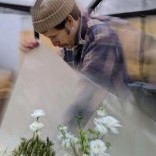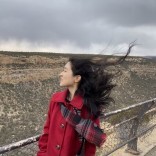Holding On
Donna Vorreyer
When my wisdom teeth were pulled, the deep roots
lay bloody in the plastic tray. Everything roots—
tooth in the mouth, the mangrove tree bending
to sip the brackish bay with its roots.
My grandmother paid us a penny for each dandelion
we pulled, but only if we had its root.
Otherwise, they’ll come back, she said. If you want
a thing to die, you must kill it at the root.
When my mother died, my father withered,
became untethered, her heart his taproot.
I pull and peel the beets for pickling, the red
seeping into my skin, blood of the root.














